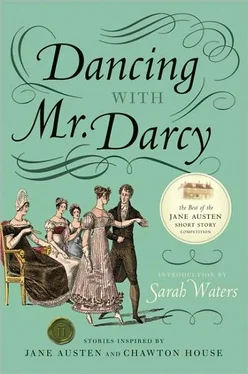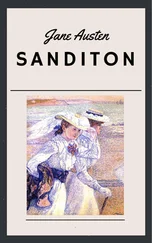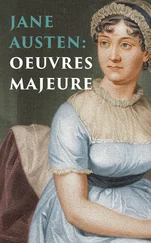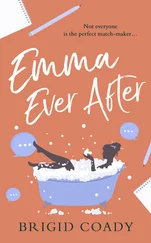‘Nothing?’ he said.
‘Oh, you know,’ she said. ‘Some doors are better left closed, and all that. You never know what you might find behind them. And nothing is always a possibility. A blank, impenetrable wall, perhaps. Sometimes it’s better to leave the door closed than to contemplate what is, or might have been, behind it. The door might be very beautiful in itself. An ancient oak door, say, with a single extraordinary hinge. The hinge, of course, is not a hinge, any more than the door is a door. But it is also very beautiful. It is a hinge forged of horseshoes. You can see the curving shapes, the nail holes; the groove that provides the grip. The ends of the shoes are hammered into simple flowers, like daisies. The door goes nowhere. It does not open. The hinge serves no purpose. It is pure ornament. It is all a comforting deception.’
‘Like the prince?’ he said.
‘Ah,’ she said, ‘the prince. I suppose I must tell you that the girl has rather cannily held on to three magic fruits, each of which she has been instructed to cut when she meets the first great need of her life. I never fail to wonder why she doesn’t cut at least one of them to avoid those seven years of mourning in the Valley of Glass, or at the very least to avoid the agony of that hideous shoeing of iron. But she’s right, you know, because in the end she needs all three of those magic fruits to conquer the demons who would see her finally vanquished and to secure her love.’
‘Hmm,’ he said.
‘Well, precisely,’ she said. ‘I did say I’d told you the interesting bit. Shall we get this last pony’s feet trimmed? At least this one doesn’t wear shoes.’
She held the lead rope, standing first on one side of the pony’s head, and then on the other, and then back again, depending on which foot he was working on. It was a dance, choreographed over time, and the three of them knew the pattern of the steps and their pacing. They did not falter.
I should like to acknowledge Kenneth McLeish’s superb version of ‘The Black Bull of Norroway’ in Tales of Wonder and Magic by Berlie Doherty (ed).
My inspiration: In February 2009 I was one of the lucky few to get through the snow to Chawton House to attend a writing workshop. There I found my horseshoe motif in the single hinge on the ancient oak door set against a wall in the Long Gallery. Jane Austen’s life and work provided my central theme: sometimes through our own choice or error, sometimes because of external events and circumstances, doors close on relationships. In life, they might never again open, even if we wish them to; in fiction we might hope for redemption in a prince or a Mr Darcy.
Miss Austen Victorious
Esther Bellamy
‘It is a truth universally acknowledged that a single man in possession of a good fortune must be in want of a wife,’ Mrs Bennet announced.
Mr Bennet, wedged between the wings of a Sheraton armchair, lowered his newspaper, which bore the headlines ‘72 killed in V2 rocket attack’, and inquired cautiously over the top of it, ‘Is that his design in settling here?’
Mrs Bennet nodded vigorous encouragement in his direction, before throwing back her head and hands in order to signal exasperation.
‘You take delight in vexing me; you have no compassion on my nerves.’
Mr Bennet gave a sort of bleat and peered frantically at Miss Bates, who was squeezed uncomfortably behind the curtain on a camp stool, but whilst trying to find her place in the script she had dropped her spectacles and, whilst groping for them frantically, she was unaware of the emanations of distress from the armchair, or indeed of anything else.
Mrs Bennet, almost equally unaware, blundered on. ‘Ah you do not know what I suffer—’ She stopped abruptly as it finally occurred to her that she had not given Mr Bennet the chance to make her suffer. He had not refused to wait upon Mr Bingley and, mouth half open from anxiety, showed not the faintest signs of doing so. Mrs Bennet leapt in to the breach and extemporised furiously.’ ‘Since you have already said that you will not visit Mr Bingley what use is it if twenty such men visit the neighbourhood?’
Inspiration came to Mr Bennet and he assured Mrs Bennet with the glee of a man who sees the end of a scene in sight, ‘depend upon it, my dear, when there are twenty I shall visit them all.’
They stared at each other in delight at their mutual cleverness. Lady Baverstoke, realising that the scene was over, clapped.
Mrs Bennet turned to her husband also clapping, ‘Oh well done, Gerald! Well done! You see, I told you you would remember the lines on the night.’
Mr Bennet muttered something about its only being the dress rehearsal.
Polly, relentlessly modern in trousers, despite Lady Baverstoke’s protests, trudged onto the set and began moving the furniture back for the ball at Netherfield. Mr Bingley, aged not quite seventeen, trailed after her, transfixed by the uniform trousers. She completely ignored him. Mr Bennet was chivvied out of his armchair and it was pushed to the side.
‘Are the girls ready?’ Mrs Bennet asked Polly. She did not bother to lower her voice being rather keen to emphasise her role as actor and director to Lady Baverstoke.
‘You’ve got them all except a Mary,’ replied Polly.
‘Oh really! She absolutely promised me to be here on time tonight.’
‘Well she’s not going to be here at all. One of the chaps she does fire-watch duty with is ill, so Muriel said she’d stand in tonight. She asked me to tell you but I didn’t get a chance before. She said she was sure you would understand.’
That was not quite true.
‘Really it’s too bad, the dress rehearsal, I do think Muriel could have made the effort.’
Polly attempted to be conciliatory.
‘Well Mary doesn’t say much does she? She just has to look disapproving most of the time.’
‘But the piano! Muriel’s the only one who can play the piano.’
‘I could play the piano if you like, Emma,’ interjected Lady Baverstoke, ‘I know the music and,’ coyly, ‘I certainly know the piano.’
Mrs Bennet looked put out but while she felt that it was very much her play and her cast she could hardly deny that it was Lady Baverstoke’s double drawing room and Lady Baverstoke’s piano. It had also been Lady Baverstoke’s idea to put on a play ‘for the war effort.’
Lady Baverstoke’s house, and double drawing room in particular, had had a very quiet war and, despite a front of magnificent indifference, she was not deaf to acid comments from the WVS and others of that ilk. Baverstoke Park was housing the contents of an important portrait gallery, rather than evacuees, for the duration. On the whole Lady Baverstoke considered the portraits a wonderful addition to the house; in the drawing room an eighteenth-century lady in yellow now went beautifully with the watered-silk curtains. By this ruse, acres of carpet, yards of curtains and masses of furniture remained jealously protected from hoi poloi by her ladyship. She spoke vaguely of ‘preserving standards’ and shook her head with regretful decision when asked if she had any material to donate for the making of clothes for bombed-out families.
Lady Baverstoke had spent England’s Finest Hour stockpiling sufficient sugar and sherry to last a thousand years. By The End of the Beginning she was the dedicated enemy of the ARP, the WVS and the Captain of the local Home Guard, to that list she could now add GIs. However, it seemed that the Americans were shortly to be foisted on the deserving French and Lady Baverstoke, sugar and sherry supplies still holding out, felt quite able to do a little fundraising in aid of the victory that must surely be at hand. Putting on a play had struck her as a means of putting her drawing room to a use that was both patriotic and elegant. Surprisingly she had found a ferocious ally in the vicar’s wife, Mrs Emma Houghton. No one could have accused Mrs Houghton of having a quiet war. She had billeted evacuees, rolled bandages, knitted balaclavas and had sent exhausted survivors of Dunkirk on their way armed with strong tea and tart jam sandwiches. And she sat on committees.
Читать дальше












